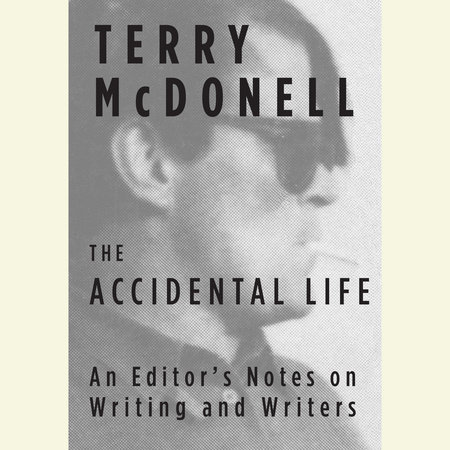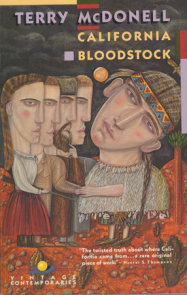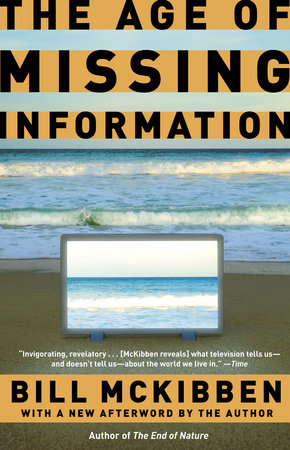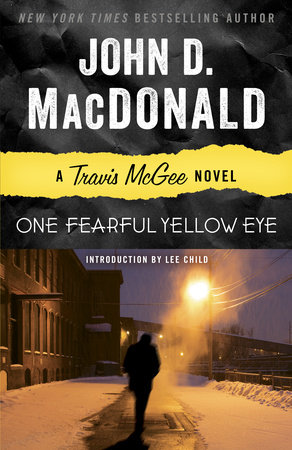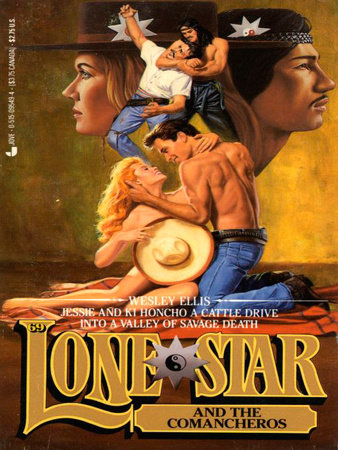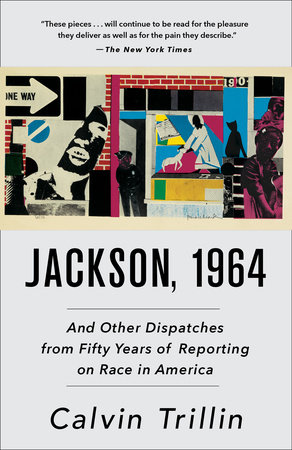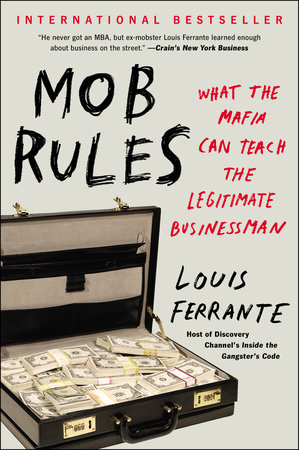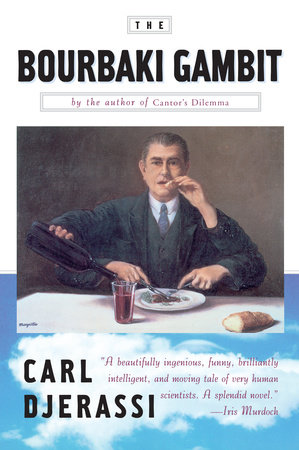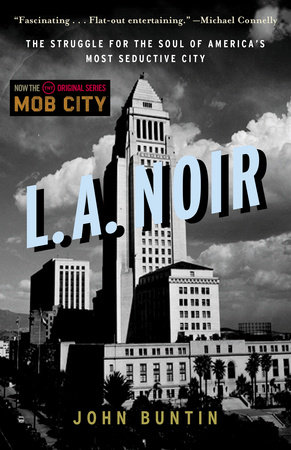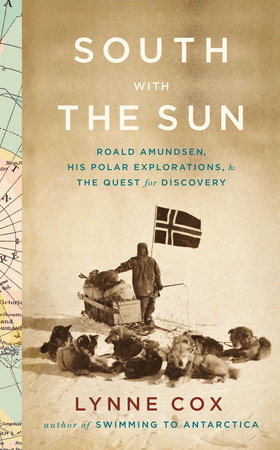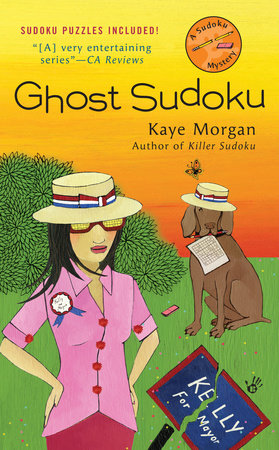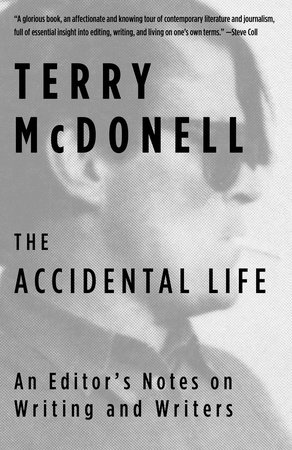

The Accidental Life
By Terry McDonell
By Terry McDonell
By Terry McDonell
By Terry McDonell
By Terry McDonell
Read by Jason Culp
By Terry McDonell
Read by Jason Culp
Category: Arts & Entertainment Biographies & Memoirs | Reference
Category: Arts & Entertainment Biographies & Memoirs | Reference
Category: Arts & Entertainment Biographies & Memoirs | Reference | Audiobooks
-
$16.00
Jul 11, 2017 | ISBN 9781101970515
-
Aug 02, 2016 | ISBN 9781101946725
-
Aug 02, 2016 | ISBN 9780735209572
690 Minutes

-
$16.00
Jul 11, 2017 | ISBN 9781101970515
-
Aug 02, 2016 | ISBN 9781101946725
-
Aug 02, 2016 | ISBN 9780735209572
690 Minutes
Buy the Audiobook Download:
YOU MAY ALSO LIKE
Praise
“Intelligent, entertaining, and chivalrous . . . McDonell, founding editor of Outside magazine in 1977, has had tenures at or near the top of Rolling Stone, Newsweek, Esquire and Sports Illustrated. Slashing costs and watching serious writers take buyouts felt [to him] ‘like a great library was burning down.’ But The Accidental Life is a fond book. It’s a fan’s notes from a man who, before the apocalypse, edited and often befriended many of his literary heroes . . . He played touch football and ate oysters with James Salter; golfed while on LSD with Hunter S. Thompson and George Plimpton; canoed and drank with Peter Matthiessen; and helped explode an uptight dinner party alongside Edward Abbey . . . McDonell’s insistence on keeping the focus on his writers rather than himself has a humble appeal—this memoir is far from self-congratulatory. He writes winningly about his regrets [and] evokes the magazine-world heyday of lavish offices, drinks carts in the evening and expense-account hedonism. Some of the details will make freelance writers scream (I screamed, and I rarely write freelance any longer.) The Accidental Life is a savvy fax from a dean of the old school.” —Dwight Garner, The New York Times
“In his long career as an editor, McDonell has worked with eminent, colorful writers. His new memoir is full of fond anecdotes about literary friends, and more. He also provides a kind of primer for aspiring editors.” –John Williams, The New York Times Book Review
“If you dig New Journalism, Ed Abbey, fiction, nonfiction, Western writers and their New York editors, and the good old days of Elaine’s, you will eat up McDonell’s memoir/literary history. Damn, that sounded like fun.” —ELLE Magazine
“Revelatory, poignant . . . instructional. The Accidental Life is one man’s manly writer stories; a writing guide—a young (or old) writer could learn a lot from the advice McDonell has gleaned [and] from his own crisp, thoughtful sentences; a eulogy for the magazine business of yore; and an engaging, soulful tribute to stories of all kinds and the quirky, complicated people who craft them. ‘There is nothing finer than deciding to write,’ McDonell begins [his book]. Anyone who agrees with that sentiment will want to read everything that follows.” —Michael Merschel, The Dallas Morning News
“Informative, inspiring, often surprising; rich in anecdotes . . . McDonell made the masthead at major publications, shaping his own stories and those of other writers from the 1970s through the early years of this century . . . By the lesson of his own style—his tight, flowing sentences—he shows how to put words on paper. It’s with author profiles that McDonell’s book acquires value: an essay on Elaine’s may amuse would-be diners who couldn’t get a table when Frank Sinatra could. Other profiles are more contemporary, including insightful takes on novelists Richard Price and Richard Ford and a painful recollection of troubled media guru David Carr. Observations on money, writer’s block and letters to the editor: editing success is all in the mix, and the mix McDonell achieves is just so. He holds off until the end of his book to explain its title. Redemption in work, he reflects, kept life steady against the accidental when ‘friends faded. Life failed.’ McDonell’s best pieces capture the accidental when they take unexpected turns that lend his writing insight and humanity.” —Gerald Bartell, San Francisco Chronicle
“An insider’s view of the magazine industry, from its apex in the ’70s to the rise of the Internet and online content and decline of print journalism—by a man who was present to witness these titanic shifts. McDonell offers stories of luminaries of various stripes, including George Plimpton, Hunter S. Thompson, Steve Jobs, a cigar-smoking and mostly silent Arnold Schwarznegger, and Margot Kidder . . . As with many editors, McDonell effaces a large part of himself in [the book]; his invisibility allows these writers, subjects, friends, and bosses to shine more brightly. He offers nuance and depth.” —Erin Gianni, PopMatters
“In a series of sharp vignettes, McDonell takes readers behind the scenes of the publishing world to reveal the humorous and at times difficult relationships between writers and their editors.” —Poets & Writers
* “As a former top-of-the-masthead editor at Outside, Rolling Stone, Esquire, and Sports Illustrated, McDonell has been there and done that over four decades of dramatic change in the magazine business. Along the way, he’s edited and drunk with a who’s who of American writers. Naturally, he has stories to tell, and he tells plenty of them in this unfailingly fascinating look at that point where publishing, literature, and celebrity meet . . . This is the perfect example of blending showstoppers with perceptive appreciations of the work of McDonell’s favorite writers, and fascinating snippets on the craft of editing. Expect this book to find a home on the desks of just about everyone who has anything to do with magazine publishing (or who likes to read about hanging out at Elaine’s with famous writers).” —Bill Ott, Booklist (starred review)
“Writers can take on a mythic quality: solitary figures who conjure imaginary worlds and see more than the rest of us. In this memoir, some of the most colorful literary titans to ever walk this earth indeed live up to their legends. But the gold in McDonell’s book is the lessons he took from these writers, beyond the bravado and antics that often characterized their work, about how to perceive the world.” —Nate Hopper, TIME
“Fascinating. . . Equal parts memoir and manual, McDonell embeds advice and insight within the absorbing anecdotes that have punctuated his career. His recollections—broken into succinct, themed essays—provide a window into the lives of the writers he has edited. Best of all for us writers reading along, these looks behind the scenes are sewn together with reflections on topics as wide-ranging as his formula for a foolproof feature pitch and his experience building the first tablet magazine at Sports Illustrated.” —Tyler Moss, Writer’s Digest
“Terrific . . . McDonell’s new book conveys the ups, downs, glamour, fun, excitement, and miseries of a magazine journalism career that saw him collaborate with some of the most prominent names in modern American fiction and nonfiction.” —Alex Heard, Outside
“McDonell documents the long, strange trip through the golden age of journalism that has been his career, [which] began when the publishing industry was booming creatively and financially, and flourished during the sex, drugs, and rock ’n’ roll of the seventies through mid-nineties. Funny and unsettling by turns, The Accidental Life offers sharp insight into that time.” Alex Belth, Esquire.com
“[A] must-read. With a cast of characters including Hunter S. Thompson, David Carr, Steve Jobs and former BAZAAR editor in chief Liz Tilberis, McDonell’s memoir is an inside look into the inner workings of a career devoted to some of the most beloved glossy mags.” —Sarah Bracy Penn, Harpersbazaar.com, “13 Books for Your Back-to-School Reading List”
“Ranging from drug-enhanced adventures with Hunter S. Thompson and George Plimpton at the Aspen Golf Club to observations that click-bait is nothing more than the old game of newsstand pandering refashioned for the digital age, the best of the essays have the mic-drop profundity of a Renata Adler sequence, or bristle with the glamour gazing of a gossip column. But for the writers reading it, the stories are also freighted with the reassurance that struggles—financial, critical, personal—that cut so close to the individual are universal. To be perched atop America’s top magazines over the last half-century was to be simultaneously immersed in many of the nation’s most important cultural movements.” —Bryce Bauer, Signature
“Compulsively readable.” —Jeff Simon, The Buffalo News, Editor’s Choice
“McDonell’s career in American magazines involved friendships and collaborations with some of the foremost cultural figures of postwar America, from novelist Richard Ford to actress Margot Kidder. The number of magazines at which he served in the past four decades is astonishing, and [in The Accidental Life], he runs his fingers along the fine grains of the editing life. McDonell [did] pretty much everything one could have hoped to in the magazine world of late 20th-century America. He edited and befriended the alpha males of a muscular brand of journalism that flowed from the American West to midtown Manhattan. He was also chummy with Helen Gurley Brown, the legendary editor of Cosmopolitan, who took the bus down Central Park West to her office, in order to stay in touch with her readers. He hung out with the crime novelist Richard Price, rafted down the Salmon River in Idaho with Rolling Stone founder Jann Wenner, and frequented the literary clubhouse that was Elaine’s restaurant on the Upper East Side. Seemingly every writer floats through these pages: Jim Harrison, Thomas McGuane, Susan Orlean and, most surprisingly of all, Jimmy Buffett, who wrote for McDonell at Outside and Sports Illustrated, composing a song for the latter’s swimsuit issue . . . McDonell acknowledges mistakes, as well as the shortcomings of the magazine industry: he also points out that few women are the top editors; people of color remain all too rare on the mastheads. [But] McDonell displays an optimism rare for his industry. ‘Editors,’ he writes, ‘have to be optimistic, ever hopeful that the next issue will come together not quite as badly as the last one.’” —Alexander Nazaryan, Newsweek
“Eloquent. . . direct and crisp, with a touch of tartness. McDonell [is] as fine a magazine editor as I have known. By his count, he has worked at 13 magazines, most of them as top editor, and he shrewdly organizes his book as a collection of vignettes, each one with its word count noted at the top, since when he edited stories he liked to know how long his pencil had to travel. Extraordinary moments [are] laid out nimbly in his memoir. At magazines like Outside, Rolling Stone and Esquire, he could persuade novelists to commit journalism, usually at length, and sometimes with the journey and not the destination as the point . . . He has all the stories, and tells them with a subtle tension, never succumbing to the easy laugh. McDonell can be sentimental, especially about friends now dead, but he is never mawkish. There is not a bloated or sappy passage in the book.” —Jim Kelly, The Wall Street Journal
“A great magazine editor is a Diaghilev commanding an executive desk, a miniature aircraft carrier from which ideas launch into the wild yonder . . . Long-haulers are often the founders of publications that they infused with their personalities, ambitions, and pioneer spirit . . . A book devoted to the craft, rigor, career highs, and sudden pressure drops of being big chief, Terry McDonell’s memoir is instructive, entertaining, and briskly told . . . He has had a peripatetic journey, with stays at Rolling Stone, Us Weekly, Esquire, Men’s Journal, Sports Afield, and Sports Illustrated, adapting to each new vessel while letting the distinctive voices of his writers venture across the page . . . As befits the former editor of Esquire, Men’s Journal, and similar sensitive-dude salons, McDonell dwells in a musky, masculine sphere, and devotes many of the chapters to friendships and interludes with guys’ guys such as Tom McGuane, Jim Harrison, Richard Ford, Richard Price, James Salter, and Hunter S. Thompson: portraits that are generous, perceptive about the fluctuations of fame and fortitude, occasionally eulogistic. The twilight melancholy that creeps through is due not only to the ghosts of those now gone—Salter, George Plimpton, as well as Liz Tilberis, the gallant editor of Harper’s Bazaar, and Elaine Kaufman, whose Elaine’s was the watering hole of choice for accomplished menfolk playing hooky from spouses and deadlines—but also to the waning of an entire way of life, the shrinking power, prestige, glamour, and advertising clout of glossy print in the Digital Age beneath Silicon Valley hegemony and the loss of journalistic comradeship. Everything McDonell writes rings true, but the marvel is (as I’m sure he’d agree) that so much superb, adventurous work is still being done in magazines in the encroaching void of such adversity. If you’re going to go down with the ship, might as well go down swinging.” —James Wolcott, Vanity Fair
“Engaging, captivating—thoroughly entertaining. ‘Editors work without applause,’ writes McDonell. For some 40 years, he worked at a slew of America’s top magazines, where he shepherded the work of many of our finest writers. The job required much more than a talent for shaping a good lede (which McDonell clearly has). It demanded equal parts diplomacy, ego-stroking, discretion and good-natured patience. But the reward was lasting friendships with some of the most talented, if idiosyncratic, people who ever fashioned words into unforgettable stories. The list of friends is a virtual who’s who of the crowning era of magazine journalism . . . The Accidental Life comprises short chapters that recall his working friendships through colorful anecdotes of time spent together, be it drinking in New York, pitching Hollywood studios, or fishing in Montana. These stories are laced with insights. McDonell’s enthusiasm for his life’s work percolates on nearly every page. [This is] one of those surprising books that at first glance seem specialized, but soon prove to be all-embracing. Where else can you have close encounters with Steve Jobs, Jimmy Buffett, and Kurt Vonnegut? McDonell’s life has been a series of such encounters, and he shares them with the inquisitiveness and magnanimity that clearly served him so well as an editor.” —Robert Weibezahl, Bookpage
“Legendary editor McDonell has lately found himself in the digital realm, having cofounded LitHub, but he’s served as editor at over a dozen magazines. His memoir is advertised on the strength of its wild side, but it is most attractive for its hard-earned wisdom on the art of storytelling.” —Michael LaPointe, Times Literary Supplement
“Terry McDonell has long been one of the pre-eminent editors in the world of popular magazines, but here he is the ring-master for a world of literary masters, irresistible eccentrics, big ego owners and gotcha newsstand covers. Step right up and into a world we seldom see from the inside out.” —Tom Brokaw
“McDonell has led the beau ideal of the editor’s life. And he’s got it down on paper. In both cases, he has done it better than anyone anywhere.” —Graydon Carter, Editor, Vanity Fair
“Legendary editor Terry McDonell writes beautifully on the subject of what he’s learned about writing, and life, from some of the best, most colorful and most difficult writers of his generation. Those of us who worked with him would tend to agree he taught us a thing or two; although he’s still wrong about semicolons.” —Jay McInerney
“In his many far-roaming years as an editor, Terry McDonell has worked with some of America’s most gifted—and gonzo—writers. From George Plimpton to Ed Abbey to Hunter S. Thompson, they all make raucous appearances in this terrific, free-wheeling memoir. It’s a must-read for anybody who is curious about the wild and talented characters who shaped the literature of our times.” —Carl Hiaasen
“Great editors are the rarest of literary and journalistic jewels: if a writer or reporter is lucky enough to find one, a magical collaboration—and inviolate friendship—take form. Terry McDonell has conjured as much magic as any magazine editor of his time, at great magazines and with great writers, from Peter Matthiessen to Hunter Thompson. This editor’s notes are both a wonderful primer and tell a remarkable tale.” —Carl Bernstein
“Every time I run into Terry McDonell, I think how great it would be to have dinner with him. Hear about the writers he’s known and edited over the years, what the magazine business was like back then, how it’s changed and where it’s going, inside info about Edward Abbey, Jim Harrison, Annie Proulx, old New York, and the Swimsuit issue. That dinner is this book.” —Jeffrey Eugenides
“Terry McDonell knew the wildest writers, edited most of them, and he remembers. A great read.” —Roy Blount, Jr.
“Legendary editor McDonell’s account of dealings with great writers is catnip for anyone in the magazine business. Publishing gossip of the highest order from an unimpeachable source. It made me drunk and giddy to have such access. While I was reading The Accidental Life, I panicked whenever I couldn’t lay my hands on it.” —Mary Norris, author of Between You & Me: Confessions of a Comma Queen
“Terry McDonell is a brilliant editor and a dangerous thinker—which is the same thing. It’s all there in The Accidental Life.” —Susan Casey, author of The Wave and The Devil’s Teeth
“A brilliant, behind-the-scenes account of some of the best storytellers of the last three decades, written by their editor who also knew them as friends. Terry McDonell writes with swagger, a poetic sense of wonder, and a gorgeously hungover soul.” —Bill Buford
“Funny, wise and down to earth, Terry McDonell has lived brilliantly in letters, always in the world but never far from the page. The Accidental Life is a glorious book, an affectionate and knowing tour of contemporary literature and journalism, full of essential insight into editing, writing, and living on one’s own terms.” —Steve Coll, Dean, Graduate School of Journalism at Columbia University, and author of Ghost Wars
“There is credit claimed for choices made and chances taken, but not a hint of self-congratulation. There are accounts of evenings spent with well-known people (with many of them laid to rest), but no name-dropping. The Accidental Life is a detailed and plain-spoken book about work.” —Greil Marcus
“I worked for Terry McDonell for six years, a wild ride that felt a lot like reading this book—inspiring, intoxicating, and just a little dangerous. If The Accidental Life doesn’t make you want to be an editor, nothing will.” —Sid Evans, Editor in Chief, Southern Living
“Terry McDonell is a rare example of a fine editor who is also an excellent writer. What he does in The Accidental Life is connect us to brilliant people, known not only for what they write but for how they lived their lives. He does this with heart, in a sometimes heartless profession. And he loves what he does.” —Gay Talese
“It reads like A Moveable Feast for the second half of the twentieth century, unfolding from L.A. to Manhattan, Montana to Aspen. All the bad boys are at large: Hunter, McGuane, Buffett, Jann, Plimpton. Yes, a lot of ‘sex, drugs and rock and roll’ went down. But McDonell always brings it back to the writers and the writing—which, by the way, he does as well as any of them.” —John Huey, former Editor in Chief, Time Inc.
“Somehow, Terry McDonell has managed to pour his rich and singular career into a book equally rich, equally singular, and always a pleasure. I enjoyed it greatly.” —Daniel Okrent, author of Last Call: The Rise and Fall of Prohibition, and first Public Editor of The New York Times
“Terry McDonell’s masterpiece is the book of the year for those who revere literary memoirs. Who knew the ‘editor’s editor’ was also a brilliant writer? His zesty portraits of wild men and mandarins—of Hunter Thompson, Jim Harrison and George Plimpton, and a host of the good, the bad and the beautiful—give luminous life to the magazine world’s epic era.” —Shelby Coffey, Vice Chairman, Newseum
“Terry McDonell is a perfect storm: He knows every great non-fiction writer of the latter half of the 20th century and, luckily for us, writes about them with such wit and aplomb. I learned a lot about these folks, but even more about what makes great writing and great editing, from a master at both. This book is a must-read for anyone who loves to read about writers and writing.” —Josh Quittner, Editorial Director, Flipboard
“The Accidental Life is a brilliant piece of work, written in a very clear and compelling style, imaginatively structured, with a wonderful sense of humor. Any writer or editor (or anyone interested in writing and reading) will find McDonell’s book not only a must read but also an extremely entertaining and informative one.” —Don Carleton, Executive Director and J. R. Parten Chair in the Archives of American History, University of Texas at Austin
“Fascinating . . . engrossing. Part memoir, part retrospective, veteran publishing executive McDonell has produced an account of 20th-century publishing, journalism, writing, and authors from the perspective of one thoroughly entrenched in the culture and increasingly variable climate of the profession. The Accidental Life provides a glimpse into the people, places, and personalities of the magazine industry, as well as tidbits and lessons learned from McDonell’s colleagues and friends. Stories build upon one another, flowing into a narrative that reads as easily as fiction, while retaining a journalistic quality (be true to your sources; let others know where one stands). McDonell’s account charts a trajectory that follows the rise and major voices in American composition and journalism, as well as the seemingly inevitable challenge of keeping pace with the changing landscape of news and media. Will engage readers of popular culture studies, journalism and the lives of literary figures.” —Gricel Dominguez, Library Journal
“Long before he became a pioneer in digital media at Time Inc., Terry McDonell was already a heroic figure in the business of print magazines. He worked on the start-up of Outside and invented Smart; commuted between Livingston, Montana, and New York; served as managing editor at Rolling Stone; and was editor in chief of Us, Esquire, Men’s Journal, Sports Afield, and Sports Illustrated. Through effortless writing and pin-sharp recollections from the past 40-odd years, this book is an amazing look on all that. McDonell worked with the best of them—Tom McGuane, George Plimpton, Tim Cahill—played ‘acid golf’ with Hunter S. Thompson, and even wrote a column for Liz Tilberis at Harper’s Bazaar before that most beloved of all fashion editors died. I mention the latter because Terry is seemingly one tough, macho journalist-editor whose tastes run from hand-tooled cowboy boots to The Paris Review (he’s president of its board of directors) to Chateau Lafite. The truth is, he’s one of the most generous, sensitive, literary guys out there, who did what he did extremely well and isn’t averse to sharing the details.” —Richard David Story, Departures
“McDonell taps into his nearly four decades in magazine journalism at such well-known titles as Esquire, LA magazine, Men’s Journal, Newsweek, Outside, Rolling Stone, as well as Sports Illustrated. The magazines he edited have garnered numerous accolades, including six National Magazine Awards (the Oscars of magazine journalism). The Accidental Life is a kind of memorial to mentors, heroes, colleagues, and friends, as well as some of the last century’s best and most important writers, including Tom McGuane and Richard Ford. It’s a bittersweet tribute to the golden age of new journalism (and its paler descendants), and a guidebook to a craft that has become increasingly devalued. It’s also the story of McDonell’s own lucky life . . . He celebrates colleagues and friends—their talents and passions; he delights in their friendship and their cocaine- and alcohol-infused adventures; he glorifies the macho angst (‘whatever that is,’ he writes) of their brotherhood . . . McDonell’s passion for ideas is what makes him such a smart editor . . . A wild, high-octane memorable ride.” —Carrie Tuhy, Publishers Weekly
“The former editor of Rolling Stone, Esquire, and Sports Illustrated looks back and celebrates after 40 years as journalist, editor, and magazine founder. [Here are] acerbic commentaries on the media, tender remembrances of friends and colleagues, and cogent advice to editors and writers. Sharp profiles feature ‘vaguely menacing’ Hunter S. Thompson, moody Kurt Vonnegut, elegant Paris Review editor George Plimpton, and ‘princely and brooding’ Steve Jobs . . . Among the most moving pieces are homages to friends, including irreverent Harper’s Bazaar editor Elizabeth Tilberis; novelist James Salter; and Peter Matthiessen . . . McDonell loved editing, which, he says, is ‘never only about the words’ but also images, typography, display copy, and ‘polish and nuance.’ He admires precision, and admonishes reporters: ‘Check your sources.’ McDonell, who founded LitHub, does not bemoan digital media, but he regrets that ‘digital content’ meetings rarely focus on the quality of journalism. A wide-ranging, smart, and witty collection testifying to an impressive career.” —Kirkus Reviews
“Early on in this engaging memoir, McDonell jokingly defines hubris as his hope, when starting out, that ‘I could become a great editor, by editing great writers and getting to know them.’ As this book’s short, anecdote-rich chapters show, hope became reality during a career that included stints at Sports Illustrated, Rolling Stone, and Newsweek. McDonell covers the nuts and bolts of getting weekly and monthly magazines out, and the transition from print to digital media; these sections have the same verve that energizes his profiles of people whose talents he tapped, including Tom McGuane, Peter Matthiessen, Jim Harrison, Richard Price, and Richard Ford. His prose zings with witty insights . . . He also writes with great warmth about former colleagues. This book will fascinate anyone interested in what goes on behind the scenes in publishing.” —Publishers Weekly







